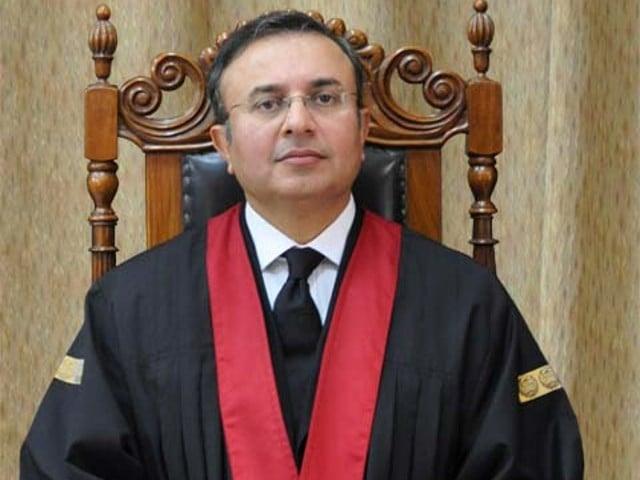Islamabad:
The judges of the Supreme Court are not passive interpreter with text, rather they are the trustees of freedom, equality and institutional independence.
“[The Supreme Court] is the ultimate guardian of fundamental rights and the final sentinel against executive or regulatory overreaction, “said a 15-page judgment written by Justice Syed Mansoor Ali Shah and approved by Justice Aqeel Ahmad Abbasi, who is also a member of the constitutional bench.
Under the judgment, SC -judges must trade with integrity and courage to withstand all interventions, external or internal that threaten to erode the autonomy of the judiciary or undermine the rule of law.
“The judges must not fall prey for lures of small, short -term benefits, whether of height, power or personal comfort that can accrue if they speak the language of authority rather than for the constitution. Such benefits are illusory and transient.
‘The true reward for a judge lies in preserving the dignity of the institution and people’s confidence. It is also the solemn duty of the judges to call, with moral clarity and institutional courage, those among their ranks that surrender to today’s power to the expense of constitutional principles.
“Criticism from within, when it is rooted in credibility to the Constitution, is not disloyalty, it is the highest form of service to the legal institution,” the verdict added.
The division bench led by Justice Shah rejected a petition filed by the Federal Public Service Commission, who rejected the fresh appointment of a female official on the position of assistant professor (Obstetrics & Gynecology) just because she changed her residence after marriage.
Justice Shah, who highlighted the “real role” of the Supreme Court and its judges on the last two pages of decision, noted that the story is a vigilant witness who does not remember those who meet power, but those who are decisive in defense of principle.
“The case law of a judge is not built on appeasement, but on principle tros, when the soul of justice is imperilated. Courts must never become a tool for tools. Rather, they must be lighthouses of constitutional morals and guardians of democratic integrity,” he said.
Justice Shah declared that the story will not release judges who give up their constitutional duty; It will not remember them as dispensers of justice, but as partners in injustice.
He noted that the Supreme Court is not just a forum for solving disputes; It is the nation’s constitutional conscience that is tasked with producing progressive and principled case law that breathes life in the constitution and bridges the distance between the law and the people’s lived realities.
“The court must remain alive to the developing ambitions of society and innovate new remedies to promote justice,” the verdict said.
The case
The court found that a married woman retains the legal estimate, choice or agency to either adopt her husband’s residence or keep her own. In the present case, the respondent, by his own will, chose to adopt her husband’s residence, which is legally allowed.
“It is also important to note that it can also affect the change of residence, which can also affect the mechanism of transfer and seniority.
“Disregarding seniority undermines bureaucratic impartiality, violates constitutional guarantees of proper process and gender equality (Articles 4 and 25 of the Islamic Republic of Pakistan, 1973 and breeding cynicism within the service. The erosion of the senior’s norms weakens administrative stability.
“Permission of changes after induction in residence would not only undermine the quota system, but also open ways to manipulation, enabling individuals to change provincial affiliation to personal advantage and thereby dilute the constitutional promise of provincial parity.
“The freezing of residence thus serves the greater constitutional purpose of federal harmony and administrative justice within Pakistan’s civil service structure,” it said.
The court noted that further legal lawyer’s claim that allowing the respondent’s change of residence would destabilize the civil service structure would have been correct if the respondent remained in the same service structure. However, “direct recruitment” of candidates involves new pay scales, different terms and a separate seniority list.



